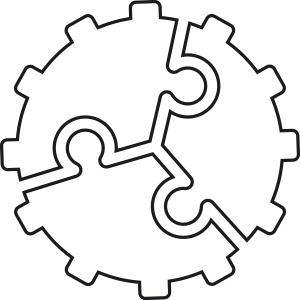Having in mind the current challenges we all now face due to COVID-19 outbreaks, and the way it changed dramatically the way we live and work, the Diversity@Work partners gathered some learnings from Diversity Charter Signatories on how to keep an inclusive culture in place and take care of everyone´s needs. This manual comprises information about current work trends, advice on measures organisations can adopt and examples on the way many organisations across EU are reacting to ensure fair and equal opportunities for all employees, show their commitment to global health as well as to take care of local communities.
We hope this new resource is an added value for all organisations: now and in future crises.
Among others, our partners at Fundación Diversidad | Promotor en España del Charter Europeo de la Diversidad (fundaciondiversidad.com) and Diversity charter – Forum Odpowiedzialnego Biznesu (odpowiedzialnybiznes.pl) have made excellent contributions to our manual.
The PDF document is available in English and can be previewed and downloaded here:

In order to ensure the dissemination of the Diversity@work Bended Learning course on Diversity and Inclusion, a training of trainers (TOT) course was conducted in three online sessions for fourteen trainers representing 12 organisations. This course was organized by AKF-PORTUGAL and led by Carla Calado and Mia Wyszynski. It was designed to increase the confidence level of participants to conduct diversity and inclusion trainings within their organizations.
The course had 9 hours in total, divided into three days between 18th June and 2nd July 2021. In each session, different parts of the face-to-face session were covered, an introduction to AKF´s Blended Learning platform was made, several tools to facilitate online sessions were presented and tested, and several concepts of diversity and inclusion were defined, analyzed and discussed. Practical and relevant examples were provided, and participants’ views were discussed. Also, in each session, special time was devoted to questions and answers.
Besides that, the advantages and disadvantages of a Blended Learning format were discussed, as well as for the online synchronous option versus a in presence training session. A role play exercise was conducted, to train how to respond to delicate and challenging discussions that may arise during a training session.

Between each session, participants were invited to share their experience regarding prejudice, discrimination and positive inclusion stories. These stories will increase each participant “D&I library” and can be very useful in future trainings to illustrate the concepts and unblock discussions.
How to progress to ensure the implementation of D&I training within organisations was discussed. It was agreed that a new session just to focus on online tools (SLIDO, MURAL, TEAMS and Zoom for eg.) was needed for some people. Also, a community of practice seems to be a good way forward, to ensure everyone has the support needed to advance and feel comfortable. The creation of training pairs among the participants was another option suggested, with the possibility of having people from other organisations supporting internal training sessions.
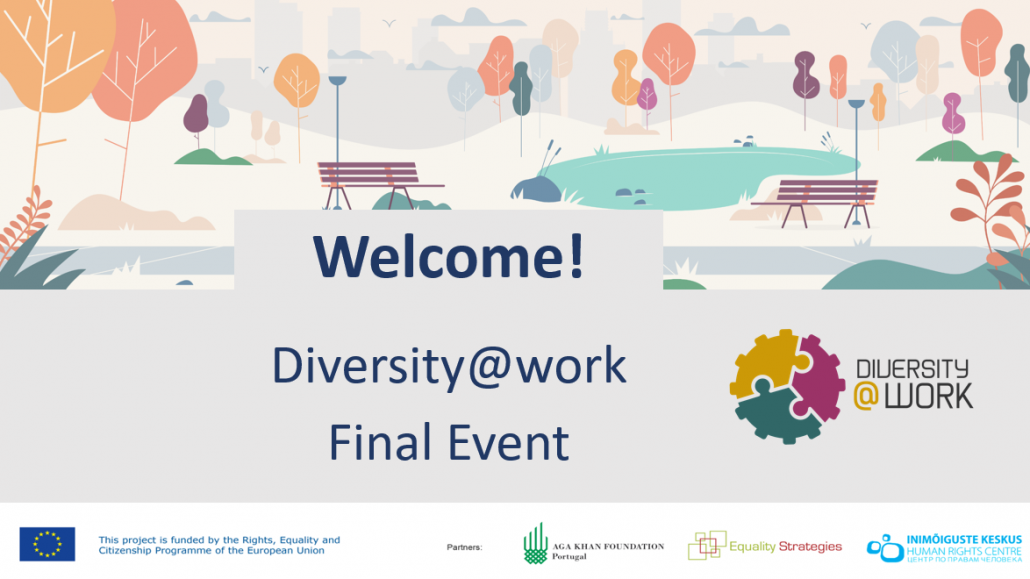
The final Diversity@work event took place on May 28th.
56 participants from 10 European countries and institutions took part in the event through TEAMS, after a welcoming message by Karim Merali, CEO of the Aga Khan Foundation and Anu Ritz, in charge of the Diversity Charters Platform at the European commission.
The project was developed with the aim of supporting the European Union Diversity Charters to promote diversity, non-discrimination and equal opportunities in the workplace.
It also aimed to develop practical tools to achieve the Charters’ objectives and attract new signatories.
The project was leaded by the Aga Khan Foundation (Portugal) together with partners from the Estonian Human Rights Centre (Estonia), Equality Strategies (Ireland), and Diversity Charters from Croatia, Czech Republic, Slovenia, Slovakia, Poland, Romania, Spain and Portugal (APPDI).
The main focus of this event was to celebrate the coming end of the project and to disseminate the products created. Among them are a Blended Learning Course on Diversity & Inclusion, along with the respective facilitators Guide, and a Charter Implementation Toolkit (available soon). A facilitators training to be held in June was also announced, with the aim to increase the confidence level of D&I professionals to use the Blended Learning course.
During the meeting, and in order to increase the interaction of the participants, a chat room was created simultaneously on the TEAMS platform, with questions and answers to collect opinions and also to clarify doubts. In addition, and in order to interact more with the participants and get information about the level of diversity they experienced, questions were asked to the participants through the Slido platform.
At the event, the main achievements, results and feedback gathered during the testing phase were presented by the partners.
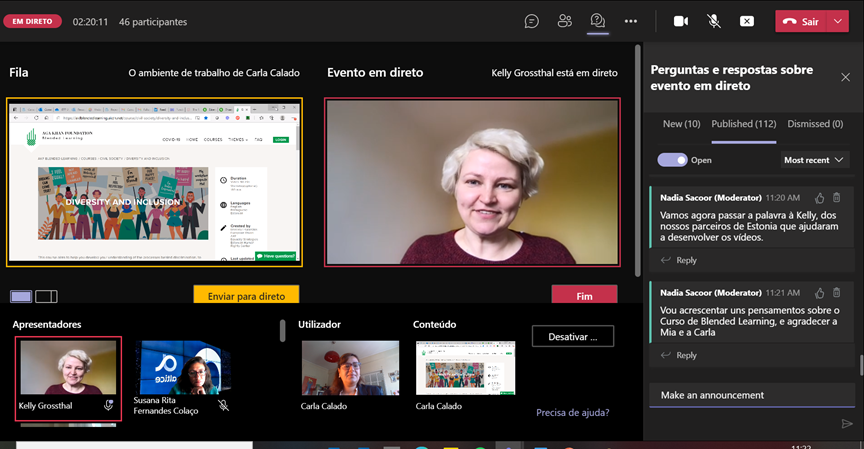
This was followed by an overview of current measures and an outlook for future actions, and explanations were given on how to take advantage of the blended learning course in the future. This free course (hosted at AKF´s Blended Learning Platform) Diversity and Inclusion | AKF Blended Learning (akdn.net), will be available upon request to all those that wish to implement it autonomously in their organizations.
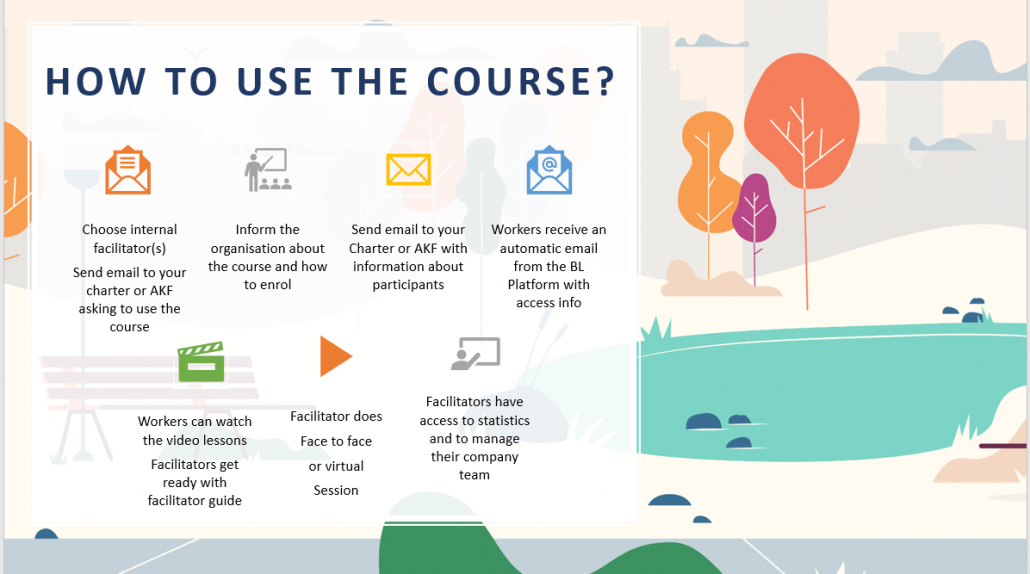
An overview of the Evaluation of the project was provided by Claudia Pedra from Stone Soup and two testimonials were presented by Susana Colaço from Altice Portugal and Piret Kask from Circkle K Estonia. Both organisations have tested the course and plan to use it further within their organisations.
During the event, the “Instantâneos” theater group had several performances with a humorous challenge, to soften the atmosphere and stimulate the audience’s mind. Participants were asked to suggest “Machines for Inclusion” that could be invented and participants got to know their inventors in interactive interviews.
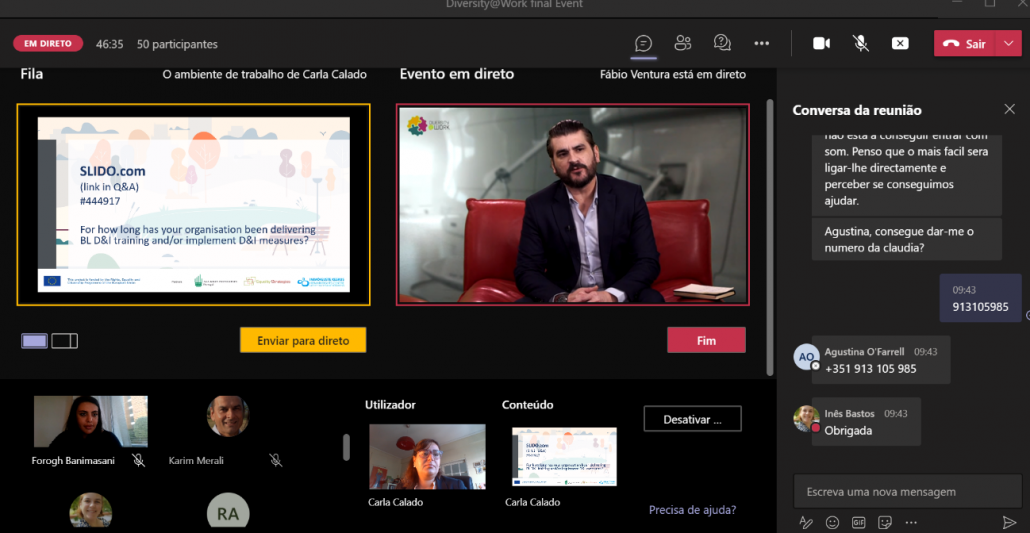
This project reached so far more than 2500 people in 10 different countries, from all types of organisations and will continue to foster D&I and the Diversity Charters along time with its products. To know more, get in touch!
